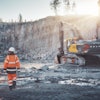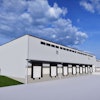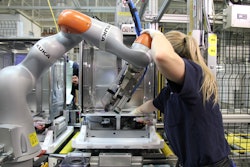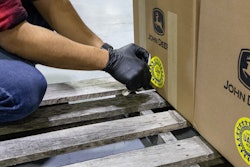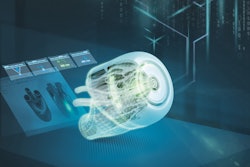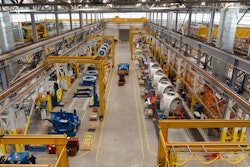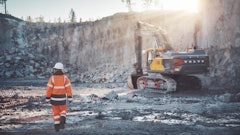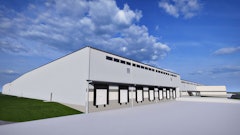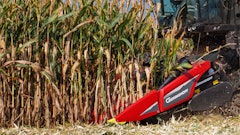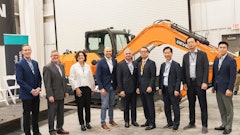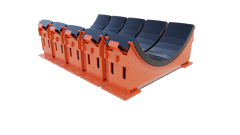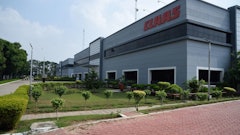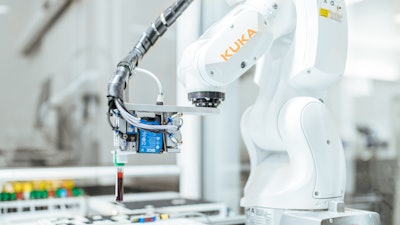
Robotics, assembly and manufacturing experts are currently converting industrial production lines in record time to help cope with the coronavirus pandemic. New ideas are being swiftly implemented to reduce bottlenecks in the supply of protective face masks and to bring test procedures to robot speed. Wherever possible, robotics and automation specialists are working to support people with smart machine power.
"The flexibility and creativity of the companies has overwhelmed us," says Patrick Schwarzkopf, Managing Director of the VDMA Robotics + Automation Association. "Initiatives and new ideas are coming from all sides to use automation technology to overcome the corona crisis. The companies are working at breathtaking speed. A can-do spirit is in the air."
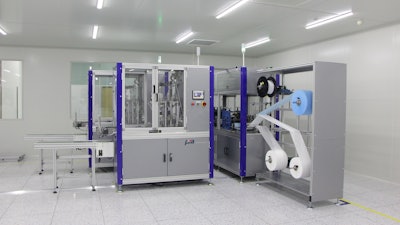 PIA revamped two existing production lines at its site in China for fully automated production of up to 140,000 protective masks per day.PIA Automation
PIA revamped two existing production lines at its site in China for fully automated production of up to 140,000 protective masks per day.PIA Automation
Automotive assembly goes into respiratory protection
Machine manufacturer PIA Automation from Amberg near Nuremberg, for example, normally manufactures fully automated production systems for the automotive and consumer goods industries, but also counts medical technology companies among its customers. Within a few weeks after the outbreak of the crisis, PIA initially revamped two existing production lines at its site in China for fully automated production of up to 140,000 protective masks per day. With the know-how from this pilot project, the company is now working on numerous follow-up orders and has also started manufacturing new assembly lines in Germany to produce face masks. The first delivery is scheduled in the coming weeks. This will enable more than 1 million respiratory face masks to be produced per day.
The project is not a one-off: Mechanical engineering company Ruhlamat from Marksuhl in Thuringia has also put its foot down and rapidly developed a production line for disposable surgical masks. The filter material for respiratory protection can be processed flexibly depending on the required safety levels.
The machine builders at Ruhlamat and PIA Automation are thus using their many years of experience in high-speed assembly automation to ramp up the required production of respiratory protection masks to the required volume.
Read more: Automotive Companies Help Put the Brakes on COVID-19 Medical-Supply Shortages
Robots are helping to stop the spread of germs
Disinfection robots have become more important than ever to keep hospitals and other necessary facilities clean and prevent the spread of coronavirus or other germs.
Siemens recently partnered with Aucma to quickly develop a disinfection robot capable of disinfecting up to 36,000 sq. m (387,500.8 sq. ft.) in 1 hour.
Danish manufacturer Blue Ocean Robotics has seen an increase in sales for its UVD disinfection robot which uses ultraviolet light (UV-C) to kill harmful microorganisms. “We are now helping solve one of the biggest problems of our time, preventing the spread of viruses and bacteria with a robot that saves lives,” said Claus Risager, CEO of Blue Ocean Robotics, in a press release.
Read more: Robots are Helping in the Fight Against Coronavirus
